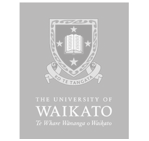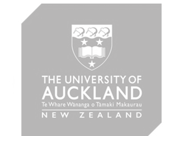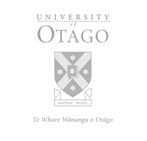University of Auckland cements top status in tertiary sport with third title
The University of Auckland has triumphed as Overall National Tertiary Champion once again, holding the University and Tertiary Sport Shield aloft for the third year in a row.
The 95-year-old inter-tertiary shield was presented to the University’s sports director Louis Rattray on Sunday night, upon completion of the 2018 National Tertiary Basketball Championship at AUT stadium on the North Shore. The shield is awarded to the tertiary institution which accumulates the most points from competing in a series of national tertiary championships (NTC) throughout the year.
The basketball tournament was the final event of the NTC calendar. Over 1,100 tertiary students competed at the top level in ten sports from badminton to ultimate frisbee across five NZ cities.
While Auckland did not secure the silverware in the basketball (Lincoln University took out the women’s title and the University of Otago the men’s) the students in blue have proved themselves the athletes to beat, leading the overall UTSNZ points table throughout the year and eventually closing out their nearest rival the University of Waikato by 22 points with an overall tally of 99.
This was thanks to their gold-medal winning performances in half of the sports contested; 3x3 basketball (men’s), futsal (women’s), badminton (mixed), volleyball (men’s) and ultimate frisbee (mixed) and second place finishes in three competitions; futsal (men’s), table tennis (men’s and women’s) and volleyball (women’s).
 So, what is the secret to their success?
So, what is the secret to their success?
University of Auckland’s acting sports manager Tracey Spray attributes their sustained performance to the trifecta of communication, dedicated resource and on-campus engagement.
“We set expectations of our competing teams and ensure our coaches and student leaders are on board with that. These are mostly around representing themselves and the University of Auckland to the best of their ability and working as a team while building a positive culture,” she said.
Spray went on to highlight the role her team undertakes to “focus on the student experience as that is what tertiary sport means to us. From a management perspective we try to do everything we can to ensure the players can just play and the coaches can just coach.”
Spray acknowledges the second-placed University of Waikato has provided challenging competition:
“They performed well throughout the year, with some of their women’s teams in particular showing their strength by winning the women’s rugby sevens, hockey and volleyball competitions. They’ve got some great athletes and staff and I’m sure they will be a real threat to our hold on the shield next year.”
Associate Director of Campus Life, Sport and Recreation Louis Rattray attributed the University of Auckland’ shield success to a wider programme of sport:
“For us, we’ve created an ecosystem around sport so whilst this is great to be winning at the top level, our system supports people playing sport at all levels. We put as much effort, if not more, into our social leagues and inter-faculty leagues, and then what spills out of that is quality competition at the top.”

Providing opportunities for all levels of student participation
The importance of providing opportunities for all levels of student participation was also reinforced by UTSNZ Executive Director Sarah Anderson.
“Tertiary institutions provide an ideal setting to keep 18-24-year olds in sport; not just by offering them representative opportunities but helping them to make social networks, broaden their university experience and develop new skills such as leadership and organisation,” emphasised Anderson.
“Tough games aside, these championships also foster university pride and a sense of identity. Students tell us that while strong competition is important to them, they love the team culture, the chance to make new friends and cement existing ones, being able to play against other tertiary students and the awesome atmosphere that creates,” says Anderson.
A student perspective
The University of Auckland’s student-athletes back this up. Men's volleyball team member and Bachelor of Education student James Anderson explains:
“Playing sport at university has meant I am able to continue my passion for volleyball while studying. The experiences, relationships and memories I have formed have greatly enhanced my time at university and have ensured that I have been able to maintain a good healthy balance."
Mark Xu, a Bachelor of Engineering student, has welcomed the chance to expand his circles by playing in the UoA tertiary men's and Engineering Eagles basketball teams:

“Being involved with basketball at uni has given me the opportunity to meet people from a wide range of backgrounds, experience different cultures and build relationships while staying fit and active.”
Maxine Cooper combines international and domestic representative futsal while studying a Bachelor of Medicine and Surgery.
“I’ve met some amazing people while playing futsal for UoA. It really helps me to de-stress from my studies. Recently it has given me the opportunity to travel overseas to Kazakhstan to compete at the world uni champs, which was one of the most unforgettable experiences of my life," says the Futsal Fern, University of Auckland futsal captain and NZ world university team captain.
These wider benefits of sport participation are becoming more of a focus for staff and directors, as tertiary communities realise the role they have to play in supporting student health and well-being.
- ENDS -
Background
For reference:
- 2018 National Tertiary Championship results
- UTSNZ Overall Shield points table
- Maxine Cooper’s winning speech at the 2018 National Tertiary Futsal Championship on 15 April
- Sarah Anderson and Louis Rattray’s prizegiving speeches on 23 September (available on request)
2018 UTSNZ Shield final placings and points:
1. University of Auckland (99)
2. University of Waikato (75)
3. Massey University (59)
4. University of Canterbury (53)
5. Victoria University of Wellington (50)
6. AUT / University of Otago (47)
7. Lincoln University (40)
History of the shield
University sport has held a significant place in New Zealand's heritage of sporting success. Competitive inter-university sport first took place in New Zealand in 1902.
-
Sport at an inter-campus level originates back to the year 1900 when Canterbury College and Otago University participated in a tennis match.
-
A proposal was put forward to organise the first formal inter-university sports tournament which then became a reality in 1902. Canterbury hosted the first Easter inter-university tournament in which Canterbury, Auckland, Otago and Victoria competed in athletics, tennis and debating.
-
Over the years further sports were added to the competition. Boxing and shooting were added in 1921, basketball in 1927, swimming in 1930 and rowing in 1932.
-
Unveiled in 1923, the Shield (pictured) has existed for 95 years.
-
The first winner was the University of Otago and they went on to hold the Shield aloft 35 times, more than any other university in New Zealand.
-
The University of Auckland has won it 15 times, the University of Canterbury 14 and Victoria University of Wellington ten. The University of Waikato and Massey University have secured bragging rights a few times (three and two respectively) and AUT has won it once over a near century of Shield competition.
-
Since a brand new collectively funded member organisation was established as University and Tertiary Sport New Zealand (UTSNZ) in late 2015, the inter-tertiary competition has moved from being one big “Easter tournie” to a series of individual championship events with a focus on top-level sporting performance. The University of Auckland has been victorious every year since the rebirth.
-
In 2018 NZ’s universities and where able, other tertiary institutions, have competed in women’s sevens, 3x3 basketball, futsal, table tennis, badminton, hockey, volleyball, ultimate frisbee, 5x5 basketball and netball.
For more information contact UTSNZ Marketing and Events Manager Anna Wallace on 027 623 0824 or anna.wallace@utsnz.co.nz
Posted: Tue 25 Sep 2018








